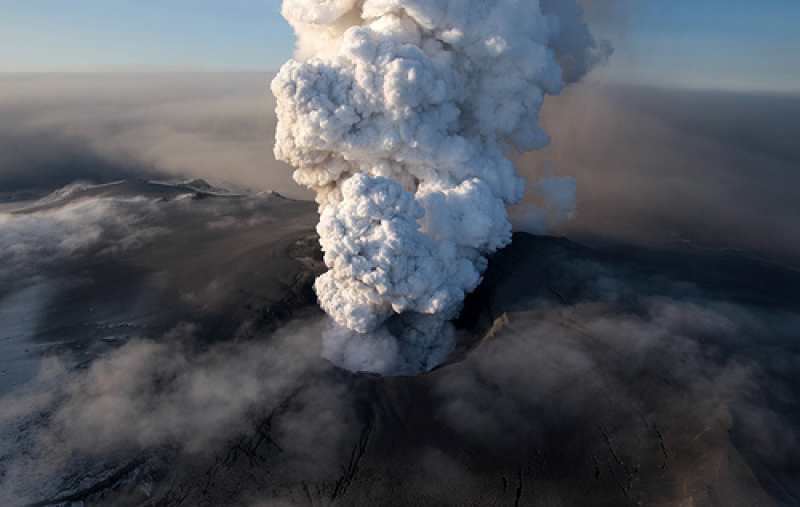
Geologists from the University of Arizona and University of Iceland reported that the effects of climate change in Iceland could lead to an increased volcanic activity in the country, according to The Guardian.
The researchers explained that the increased activity might be the result of the land rising. The team of experts came up with their findings after analyzing data taken from over 60 GPS systems located at five areas in Iceland.
According to their data, parts of Iceland have been rising by 1.4 inches each year. They attributed the uplift to the rapid melting of glaciers in the area due to global warming.
According to the researchers, the massive glaciers on Iceland's surface act as weights pushing down to the ground. As they melt, pressure on the land is reduced which causes it to move upwards.
"It's similar to putting weights on a trampoline," Richard Bennett, a co-author of the study and geologists from the University of Arizona explained.
"If you take the weights off, the trampoline will bounce right back up to its original flat shape," he added.
Bennett and his colleagues warned that as the glaciers continue to melt at a fast rate, the uplift of land will increase. They predicted that by 2025, Iceland will rise by 1.6 inches annually, the Washington Post reported.
The researchers then noted that the uplift could lead to the development of ideal conditions for volcanic eruptions. They explained that the rising land and reduced pressure on the ground could cause the mantle rocks located underground to melt.
Given Iceland's geographical characteristics, these environmental effects could lead to disastrous events since the country has a number of active volcanoes such as the Eyjafjallajökull and the Bárðarbunga.
Located in Iceland's southern region, Eyjafjallajökull's las erupted in April of 2010, according to the Telegraph. Its powerful eruption sent clouds of smoke 20,000 feet up in the air, which forced airlines in Europe to cancel all of their flights for around a week.
Bárðarbunga, on the other hand, has been discharging lava since August of last year.


















